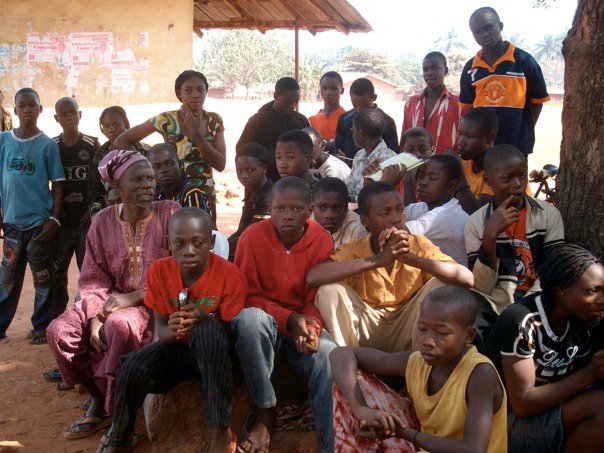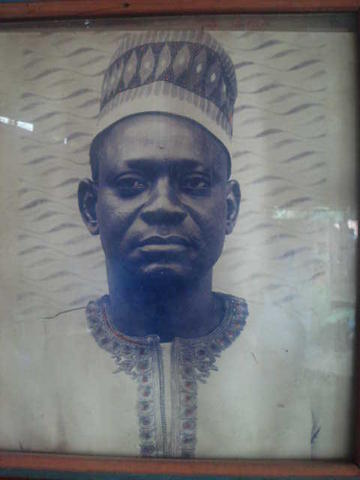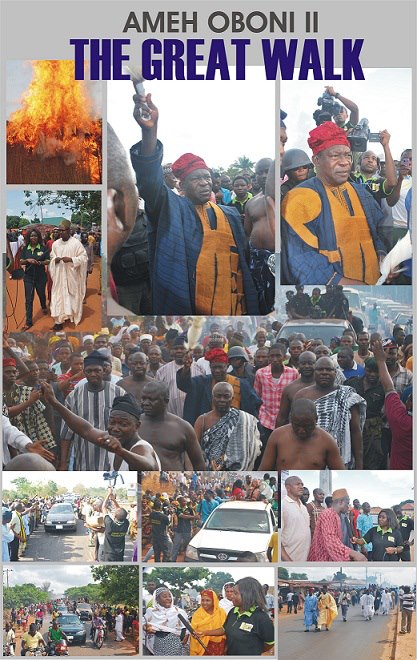
By Boniface Opaluwa
It was Inyakulugbe who declared in Igala proverbial assembly that “Aji gbé odu nwu a gbé n.” (When a river dries up, it does not dry along with its name). For everything is known as something. Everyone has a name which may be known or unknown, based on the circumstances or the environment the person finds himself.
A name is a means of identification. It evokes and creates recognition. It is the primary source of identity.
Name as a means of identification
Names can identify a class or category of things or a single thing. A personal name identifies a specific individual human. Knowing somebody or something begins by knowing the name. Because if you set out to travel to a village and you know not the name of your destination, your journey will be nothing but ad infinitum.
A name can be given to a person, place or thing. Igala names are predominantly given from affiliation to deities, past generation personages, market days, events or special occurrences. Like we have the name ETILA which is given to children born during the second world war of Adolf Hitler. However, in contemporary times, Christianity and Islam has a lot to say about what name is given to who.
Power in names?
Every Igala name is meaningful. It is a common belief in many cultures that there is some power in names which connects with the one who bears that particular name. The claim is made that the spirit of an individual is linked to his name.
Among the ancients, names were thought to be extremely powerful and act, in some ways as a separate manifestation of a person or deity. Even Catholic exorcists believe that to successfully deliver a host from the possession of an evil spirit, the name of the possessing spirit is required.
Name: Igala point of view
In Igala parlance, name is beyond a means of identification. It is taken to be the sum total of a person’s character. Typically among our people, when an enquiry is required for any given purpose, a person’s father’s name becomes even more important and of higher value than the name of the actual person in the matter.
Name points beyond the person to the personality or the character of the individual. Customarily, this chain spirals into and terminates within the larger family. Oh yes! “Atu jé gbogboo, ofe abo ya wa..” “Oji kõ nwéné, unyi ya du ny’ala.”
A name outlives the owner of the name. Our names precede us and they live beyond us. Some plants and animals are extinct, but their names linger with us still. Some rivers have long dried up but their names are unforgettable. A name travels faster than the person named. It goes to places where the person might not ever go. We hear of ICHÉKPA. But how many persons have seen it? You don’t need to meet a man before you hear his name.
Name is the strongest legal tender in Igala cultural economy. It is the greatest family heritage and legacy. It is worth more than any material thing. It must be preserved and guarded jealously.
ODU ÕMÉMÉLÉ ; The good name
In this context, we do not use the expression “good name” to refer to the phonetic, literary or artistic beauty of a name. Good name here stands for the reputation. Conduct and character of an individual or a group of people. This classification focuses on the REPUTATION of a person or people.
According to Harvey Mackay, you can’t buy good reputation. You must earn it. Good name is cultivated over a period of time. It is a result of repeated acts of virtue.
“A good reputation is is more valuable than money.” These words of Publilius Syrus is re-echoed by the Japanese when they say “Ai ye sia sei shin.” Good name can suffice for riches. Money is not the ultimate, for in our world today, it is unfortunate that we have raised people who know the price of everything and know the value of nothing.
The pain in bad name
In Igala socio-cultural environment, no one is viewed or evaluated in isolation. The conducts of a person is sure to have ripple effects, cascading into the family circle.
A bad wound may heal, but a bad name will kill. Abia ahimu! Abia ahimu!! Abia ahimu!!! Ma d’odu bibi nw’abia kuma f’abia kpa…. Give a dog a bad name, and no one cares even when it is being killed.
The German philosopher Friedrich Nietzsche highlights the consequences of bad name. He says, ” A bad conscience is easier to cope with than a bad reputation. ” While it may not be the ideal thing, we must live with the reality that one rotten egg corrupts the rest, as a sticky finger soils the others.
Index of some bad names
OJI (Thief/ criminal)
Ajõkõ ( Harlot)
Amõté (drunkard)
Ochu/ Ajochu (witch, sorcerer)
Egbo (Lazy, indolent)
ÉNÉ uji (unjust, fraudulent)
Éné Alachi (cruel, callous, wicked)
Éné Igbélé (useless, wayward).
If any family is tagged with these names, people tend to avoid them. Members of such families are not considered for good things in the community.
While generic profiling is wrong and evil, we must ensure we don’t engage in these vices that attract such branding and categorisations.
In our cultural milieu, no man is an island. As such, our actions must be weighed against this backdrop. Because of the generic and social dimensions of our existence and the fallout of our actions. Some persons are like AKPA ATÕRÕ BIÉ. The smelly insects that destroy a largest of soup.
Each of us must act as an ambassador of his family. The good we do or attempt to do advances the good name of our families. Society does not forget. It’s memory is acute and accurate. It crowns us for our good deeds and crucifies us for the bad. Even after we are long gone.
“Aji gbé odu nwu a gbé n. ” -Inyakulugbe.


